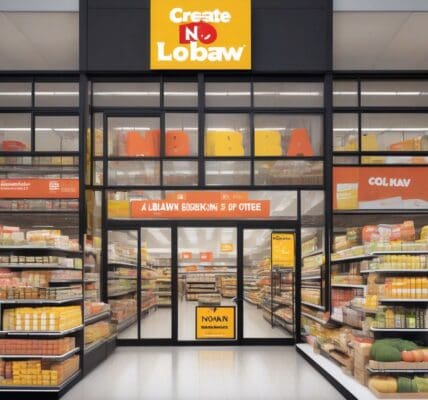In an era where technology increasingly influences consumer behavior, Hungryroot, a wellness-focused grocery service, has taken a significant leap forward with the launch of its SmartCart. This innovative endeavor claims to be a first-of-its-kind AI system, revolutionizing how people approach their dietary habits and grocery shopping. Since its inception in 2019, Hungryroot has been dedicated to advancing AI in its operations, and the SmartCart represents the culmination of these efforts.
Previously, Hungryroot’s original algorithm, dubbed “box fill logic” (BFL), provided a structured way of filling customers’ grocery carts based on their prior preferences. However, this method had limitations, particularly when it came to adapting to changing consumer behaviors and preferences over time. To address these challenges, Hungryroot has introduced SmartCart, an upgraded system that integrates ten machine-learning models. These models leverage vast amounts of data, processing millions of data points to provide tailored recommendations for healthy groceries, recipes, and supplements.
One standout feature of SmartCart is its ability to predict food categories that consumers may desire based on recent ordering patterns. For instance, if a customer typically orders three smoothies and four dinner servings, SmartCart accurately anticipates these preferences. Additionally, one of the AI models employs a generative AI approach similar to ChatGPT to analyze various orders. It cross-references data from numerous users to suggest characteristics suited to each customer’s needs—be it low-sodium options, quick-to-prepare meals, or high-protein, on-the-go snacks.
Crucially, SmartCart offers a level of personalization not commonly found in traditional grocery shopping experiences. By assigning weights to different models, the system ensures that recommendations align with individual preferences, alleviating the one-size-fits-all approach of earlier systems. As a result, this customer-centric approach has already garnered several patents, underscoring the innovative nature of Hungryroot’s technology.
Antoine Atallah, SVP of Data Science at Hungryroot, notes, “Most consumer companies are adopting AI developed by others, but at Hungryroot, we’re building our own models. This gives us a unique advantage and ensures our AI is perfectly attuned to our customers’ needs.” This bespoke approach is what sets Hungryroot apart in the competitive landscape of tech-savvy grocery services.
The SmartCart is already showing promising results. According to Hungryroot, customers utilizing SmartCart place orders twice as frequently as those who shop independently. Impressively, 90% of SmartCart users report progress towards their health goals. Furthermore, users save an average of three hours weekly on meal planning, grocery shopping, and cooking, all while discovering three times more food options than they would by shopping alone.
Ben McKean, founder and CEO of Hungryroot, emphasizes the transformative nature of SmartCart: “It’s like having your own personal assistant for healthy living. It gets to know your goals, lifestyle, and budget, relieving you of the burden of meal planning and shopping for nutritious foods.“ This sentiment resonates strongly with the growing consumer demand for convenience and effectiveness in grocery shopping.
Beyond enhancing the customer experience, SmartCart translates its innovative technology into operational efficiencies. By factoring in real-time inventory levels during the recommendation process, the SmartCart reduces food waste at Hungryroot facilities by an impressive 80% compared to traditional retailers. This not only benefits the environment but also contributes to a more sustainable shopping experience.
SmartCart is positioned to become a key player in the grocery industry, as it addresses the evolving needs of health-conscious consumers who seek convenience without compromising on quality. With the barriers between technology and grocery shopping diminishing, strategies focusing on personalization and user experience will be essential for retailers striving to maintain competitive advantages.
In conclusion, Hungryroot’s SmartCart illustrates how AI can redefine grocery shopping by providing personalized recommendations that align with consumers’ health goals and preferences. With its innovative model setting new standards, Hungryroot is steering the grocery landscape toward a future where technology and wellness coexist seamlessly. This transition reaffirms that, in the world of retail, embracing advanced technology is no longer a luxury—it’s a necessity.











